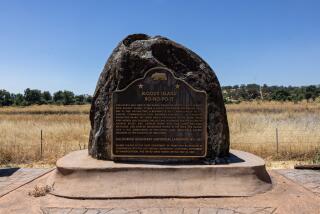Texas Official Tells of Names Being Altered
- Share via
Soft-voiced with a lilting laugh, Aurora Sanchez mixes mellow warmth with a hard-edged skill for surviving in the South Texas world of the 1950s, when even a Latino’s name might be taken away.
She is now 46 and director of personnel for the Texas Treasury Department in Austin. She recalls with pride that she was among the first Mexican-American cheerleaders for the Floresville High Tigers, back in 1958.
But a more lasting impression is how Anglo teachers would change Latinos’ given names, including those of several of her 13 siblings. “Catarina became Katie,” she says. “Elisa became Alice; Rodolpho became Rudy; Victoriano became Victor, and Raouel became Roy.” And Roy became the mayor of Floresville, Tex.
“The teachers often resorted to just any name that came to their minds,” Sanchez says. “The only reason they didn’t change my name is because they could pronounce it. They also wouldn’t allow kids to speak Spanish. We had to sit in a different part of the room.
“We accepted it because we knew there was not much that we could do. Everything is political. If you learn to play the game in one area, you can play it in another.
“It wasn’t until (civil rights) groups started organizing that we started fighting it in the 1960s. Those whose names did get changed often met derision when they took back their real names.” She says one college professor tells of beginning to use his real name only to have Anglos accuse him of “pulling a Kareem Abdul-Jabbar.”
“Now it’s different. My little niece goes into class and tells the teachers how to pronounce her name. It’s exciting to know there is a change.”
More to Read
Sign up for Essential California
The most important California stories and recommendations in your inbox every morning.
You may occasionally receive promotional content from the Los Angeles Times.













